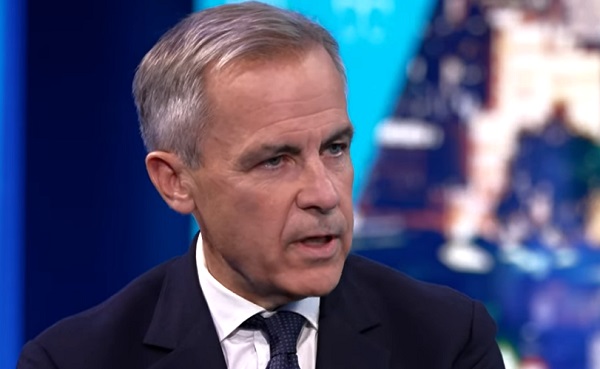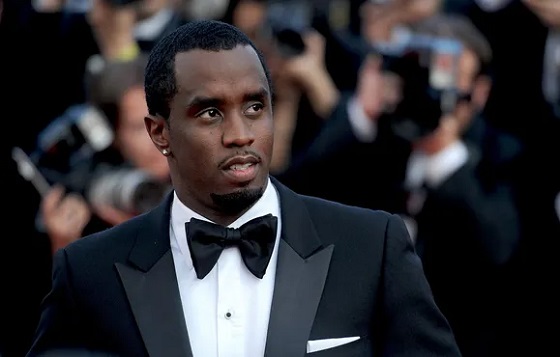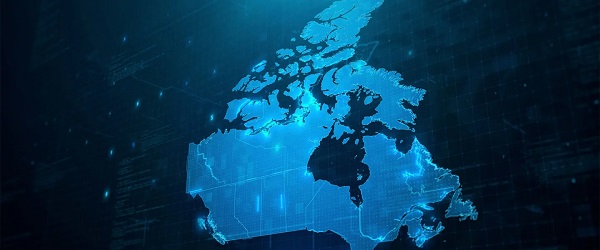National
Two Liberal ministers suggest Mark Carney will call election after being sworn in as PM

From LifeSiteNews
Both Public Works Minister Jean-Yves Duclos and Industry Minister Francois Phillipe-Champagne have hinted that a federal election is coming sooner than later now that the Liberals have selected their new leader, Mark Carney.
Two Liberal Party ministers have hinted that their new leader, Mark Carney, will call a federal election shortly after being sworn in as prime minister this Friday.
Earlier this week, outgoing Prime Minister Justin Trudeau’s Public Works Minister Jean-Yves Duclos told reporters directly that Canadians will soon head to the polls. He made the comments considering both Carney being the new leader, and the fact that all opposition parties have said they would vote non-confidence against the Liberal minority government once parliament resumes on March 24.
“The opposition parties have been very clear for weeks and months now,” said Duclos, according to Blacklock’s Reporter. “They decided they would bring this government down regardless of what we could do.”
The Liberal Party on Sunday night elected self-proclaimed globalist and World Economic Forum-linked former central banker Carney as the new leader. Carney will be sworn in as PM this Friday.
In January, after announcing he would resign, Trudeau prorogued Parliament until March 24. A general election will take place sometime in late April or early May, should Carney officially ask the Governor General to dissolve parliament before March 24, which is expected.
Because Parliament is prorogued until March, Duclos said that this is “the last day we can be in government.”
“We’ll see whether we should call an election before.”
When a reporter asked him how “quickly” an election would come, Duclos replied, “We know the deadline is March 24.”
In addition to Duclos, Industry Minister Francois Phillipe-Champagne on Sunday, after Carney was elected, told reporters, “I think we’ve said we’re going to go to the polls to get a strong mandate fairly quickly so that we can have not only the team –the Liberal team–but the whole Canadian team with us.”
“I think Canadians are ready for that, they want a strong team,” he added.
Election needed now, says opposition leader Pierre Poilievre
Leader of the Conservative Party of Canada (CPC) and official opposition Pierre Poilievre told reporters on Monday that not only should an election be called now, but that Carney is “trying to distract from his many scandals and conflicts of interest as well as his disastrous record as Justin Trudeau’s economic advisor by talking about Trump.”
“He’s the guy who sold out to Trump,” said Poilievre, adding that six days after U.S. President Donald Trump “threatened Canada” with tariffs “to steal our jobs,” Carney “announced to Brookfield shareholders that he would move his headquarters from Canada to New York.”
“And when you asked him about it, he lied to your face,” he added.
Poilievre said the CPC has it “in writing and we proved it.”
“He sold out Canada. He put his profit ahead of our people and he did exactly what Donald Trump wanted. Never before have we had a prime minister so conflicted and compromised and yet so little scrutinized,” he added.
On Sunday, outgoing Prime Minister Trudeau in his last speech before Liberal Party supporters boasted about his government’s anti-life, pro-abortion agenda, as well as the party’s legalization of “same-sex marriage,” which happened 20 years ago.
C2C Journal
Canada Desperately Needs a Baby Bump

The 21 st century is going to be overshadowed by a crisis that human beings have never faced before. I don’t mean war, pestilence, famine or climate change. Those are perennial troubles. Yes, even climate change, despite the hype, is nothing new as anyone who’s heard of the Roman Warm Period, the Mediaeval Warm Period or the Little Ice Age will know. Climate change and the others are certainly problems, but they aren’t new.
But the crisis that’s coming is new.
The global decline in fertility rates has grown so severe that some demographers now talk about “peak humanity” – a looming maximum from which the world’s population will begin to rapidly decline. Though the doomsayers who preach the dangers of overpopulation may think that’s a good development, it is in fact a grave concern.
In the Canadian context, it is doubly worrisome. Our birth rates have been falling steadily since 1959. It was shortly after that in the 1960s when we began to build a massive welfare state, and we did so despite a shrinking domestically-born population and the prospect of an ever-smaller pool of taxable workers to pay for the expanding social programs.
Immigration came to the rescue, and we became adept at recruiting a surplus population of young, skilled, economically focused migrants seeking their fortune abroad. The many newcomers meant a growing population and with it a larger tax base.
But what would happen if Canada could no longer depend on a steady influx of newcomers? The short answer is that our population would shrink, and our welfare state would come under intolerable strain. The long answer is that Canadian businesses, which have become addicted to abundant, cheap foreign labour through the Temporary Foreign Worker Program, would be obliged to invest in hiring, training and retaining Canadian workers.
Provincial and federal governments would scramble to keep older Canadians in the workforce for longer. And governments would be torn between demands to cut the welfare state or privatize large parts of it while raising taxes to help pay for it.
No matter what, the status quo won’t continue. And – even though Canada is right now taking in record numbers of new immigrants and temporary workers – we are going to discover this soon. The main cause is the “peak humanity” that I mentioned before. Fertility rates are falling rapidly nearly everywhere. In the industrialized West, births have fallen further in some places than in others, but all countries are now below replacement levels
(except Israel, which was at 2.9 in 2020).
Deaths have long been outpacing births in China, Japan and some Western countries like Italy. A recent study in The Lancet expects that by 2100, 97 percent of countries will be shrinking. Only Western and Eastern sub-Saharan Africa will have birth rates above replacement levels, though births will be falling in those regions also.
In a world of sub-replacement fertility, there will still be well-educated, highly skilled people abroad. But there will not be a surplus of them. Some may still be ready and willing to put down roots in Canada, but the number will soon be both small and dwindling. And it seems likely that countries which have produced Canada’s immigrants in recent years will try hard to retain domestic talent as their own populations decline. In contrast, the population of sub-Saharan Africa will be growing for a little longer. But unless education and skills-training change drastically in that region, countries there will not produce the kind of skilled immigrants that Canada has come to rely on.
And so the moment is rapidly approaching when immigration will no longer be able to make up for falling Canadian fertility. Governments will have to confront the problem directly—not years or decades hence, but now.
While many will cite keeping the welfare state solvent as the driving force, in my view this is not the reason to do it. The reason to do it is that it is in Canada’s national interest to make it easier for families to have the number of children that they want. A 2023 study by the think-tank Cardus found that nearly half of Canadian women at the end of their reproductive years had fewer children than they had wanted. This amounted to an average
of 0.5 fewer children per woman – a shortfall that would lift Canada close to replacement level.
The United Nations Population Fund (UNPF) has noticed the same challenge on a global scale. Neither Cardus nor the UNPF prescribes any specific solutions, but their analysis points to the same thing: public policy should focus on identifying and removing barriers families face to having the number of children they want.
Every future government should be vigilant against impediments to family-formation and raising a desired number of children. Making housing more abundant and affordable would surely be a good beginning. Better planning must go into making livable communities (not merely atomized dwellings) with infrastructure favouring families and designed to ease commuting. But more fundamentally, policy-makers will need to ask and answer an uncomfortable question: why did we allow barriers to fertility to arise in the first place?
The original, full-length version of this article was recently published in C2C Journal.
Michael Bonner is a political consultant with Atlas Strategic Advisors, LLC, contributing editor to the Dorchester Review, and author of In Defense of Civilization: How Our Past Can Renew Our Present.
COVID-19
Court compels RCMP and TD Bank to hand over records related to freezing of peaceful protestor’s bank accounts

The Justice Centre for Constitutional Freedoms announces that a judge of the Ontario Court of Justice has ordered the RCMP and TD Bank to produce records relating to the freezing of Mr. Evan Blackman’s bank accounts during the 2022 Freedom Convoy protest.
Mr. Blackman was arrested in downtown Ottawa on February 18, 2022, during the federal government’s unprecedented use of the Emergencies Act. He was charged with mischief and obstruction, but he was acquitted of these charges at trial in October 2023.
However, the Crown appealed Mr. Blackman’s acquittal in 2024, and a new trial is scheduled to begin on August 14, 2025.
Mr. Blackman is seeking the records concerning the freezing of his bank accounts to support an application under the Charter at his upcoming retrial.
His lawyers plan to argue that the freezing of his bank accounts was a serious violation of his rights, and are asking the court to stay the case accordingly.
“The freezing of Mr. Blackman’s bank accounts was an extreme overreach on the part of the police and the federal government,” says constitutional lawyer Chris Fleury.
“These records will hopefully reveal exactly how and why Mr. Blackman’s accounts were frozen,” he says.
Mr. Blackman agreed, saying, “I’m delighted that we will finally get records that may reveal why my bank accounts were frozen.”
This ruling marks a significant step in what is believed to be the first criminal case in Canada involving a proposed Charter application based on the freezing of personal bank accounts under the Emergencies Act.
-

 Alberta2 days ago
Alberta2 days agoAlberta government records $8.3 billion surplus—but the good times may soon end
-

 Banks2 days ago
Banks2 days agoWelcome Back, Wells Fargo!
-

 MxM News2 days ago
MxM News2 days agoDiddy found not guilty of trafficking, faces prison on lesser charge
-

 Also Interesting2 days ago
Also Interesting2 days agoEndorphina Slots: High-Quality Games Now at Zoome Casino Canada
-

 Bruce Dowbiggin2 days ago
Bruce Dowbiggin2 days agoCanada Day 2025: It’s Time For Boomers To Let The Kids Lead
-

 Business2 days ago
Business2 days agoPrairie provinces and Newfoundland and Labrador see largest increases in size of government
-

 Canadian Energy Centre2 days ago
Canadian Energy Centre2 days agoAlberta oil sands legacy tailings down 40 per cent since 2015
-

 Economy2 days ago
Economy2 days agoTrump opens door to Iranian oil exports






